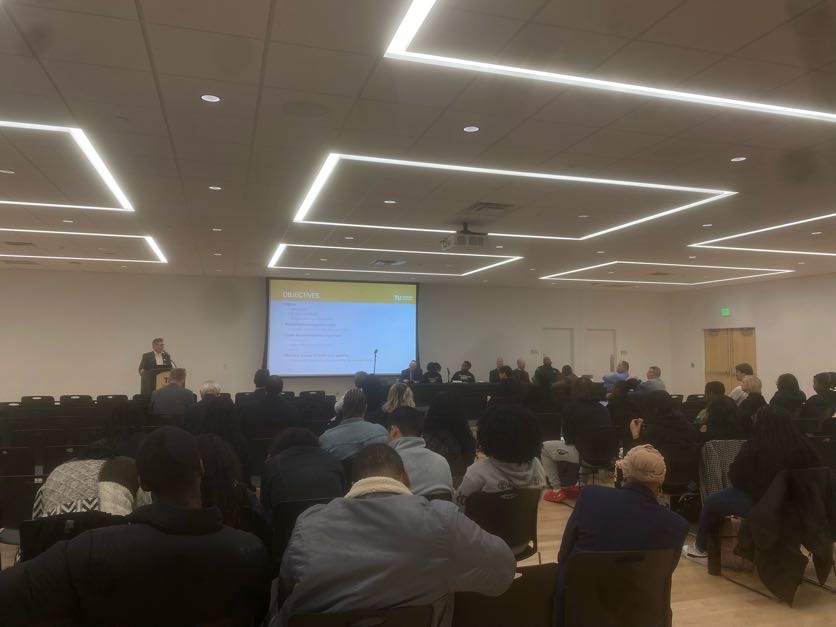
What you need to know from the FY25 student fees forum
By Gabriel Donahue, editor-in-chief
The Student Government Association and the Division of Student Affairs hosted its annual fees forum Thursday to report changes in mandatory fees for the 2025 fiscal year.
Total annual fees are projected to increase by 7%, or $274. This rate is heightened by the wellness fee as it doubles to an annual $100 in the last phase of its incremental implementation.
Excluding the elevated wellness fee, the total fee increase will sit at 5.7%.
“We want to explain to you that we really do our best to keep these increases as low as possible, especially considering the outside and external circumstances that are not in our control that, unfortunately, created a situation where we have to increase fees to a degree,” Ben Lowenthal, vice president of administration and finance, said.
Inflation is one of these external factors. The consumer price index rose 3.4% from December 2022 to 2023, according to the U.S. Bureau of Labor Statistics.
Fees that will increase
Annual tuition is projected to increase $148 for full-time Maryland residents and $1,220 for non-residents, according to the university’s estimates.
Part-time students will also see a 2% and 5% increase per credit hour for in- and out-of-state students, respectively.
Tuition is expected to increase through 2026, according to university data. Full time, in-state students may see an increase of almost $900 for tuition and fees between the 2023 and 2026 fall semesters.
Non-resident students could pay $4,354 more per academic year in 2026 than in 2023, according to the same data.
All room-and-board will see a 3.5% increase, an improvement from last year’s 5% increase, Director of Housing Operations Abbas Hill said.
Additionally, Director of Auxiliary Services Jacob Smith said meal plans will cost more due to a contractual mandate by dining vendor Aramark to increase meals by 5% or, if less than 5%, the consumer price index for food away from home.
Towson’s previous dining vendor, Chartwells Higher Ed, had a similar contract, Smith said in an interview. However, the CPI had consistently been less than 5% until recently, meaning meal plans would increase by smaller increments.
Other increases for full-time undergraduates include an additional $116 in auxiliary fees, $100 for athletics, $50 for wellness, and $4 each for technology and SGA fees per year.
Auxiliary fees cover services including the UStore, postal services, dining and Campus Recreation.
Fees that will remain the same
Parking fees will see no change for the 2025 fiscal year, Steve Jones, vice president of operations and chief human resources officer, said at the forum.
He said fine revenue is up 14% despite the university making it “a little bit more expensive if you continue not to follow the rules.”
“We don’t want to make this a source of revenue but at the same time, we want to make sure that people park appropriately,” Jones said.
While Jones reported that shuttle ridership is down, Parking and Transportation is monitoring a potential need for more buses to transport students from West Village to the academic campus.
Gabriella Linsky, a University Residence Government representative in the SGA, suggested the increased demand of West Village residents could correlate to their not being able to park in other garages, and therefore may rely more heavily on the shuttles.
The proposed fees are subject to change if warranted by strong student feedback, but for the most part will go into effect as reported, Lowenthal said in an interview.
The SGA will begin collecting student feedback Friday, SGA president Jordan Colquitt told The Towerlight. The collection period will end next Thursday, and the results will be reported to Vernon Hurte, vice president for Student Affairs.
Lowenthal said at the beginning of the presentation that student feedback led to a cap on charges for graduate students. The university may now only charge fees on nine graduate credit hours.

